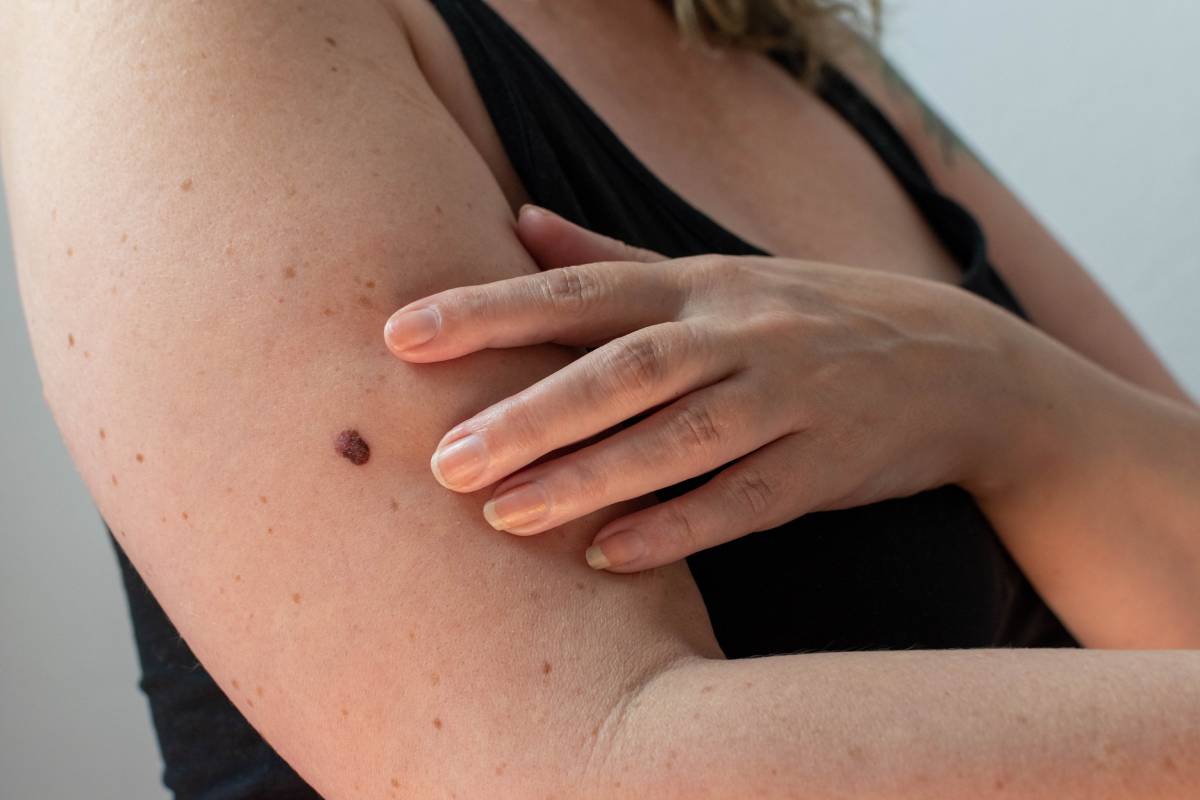Skin cancer is a serious medical condition that varies widely in both the severity of the situation and the remedy required to cure it. There are many different types of skin cancers, and each one should be approached with care by a medical expert who has experience with eyelid skin cancer reconstruction. Those who have seen the effects of skin cancer firsthand in family members often wonder if skin cancer is hereditary. Unfortunately, the answer to this question is yes. Those with family members who have dealt with skin cancer should take extra precautions to avoid contracting the condition themselves. We explain more about the hereditary nature of skin cancer below.
What Is Skin Cancer?
Skin cancer is a type of cancer that develops on the surface of the skin. The primary source of most skin cancers is overexposure to the sun without using proper sun protection. There are many types of skin cancer, each of which varies considerably in their severity and necessary treatment. Skin cancers should always be treated seriously and looked at by a medical professional. If you have suspicions about any skin abnormalities, you should visit a doctor for inspection.
Is Skin Cancer Hereditary?
Skin cancer itself can not be passed down between generations. However, the risk factors that make one vulnerable to developing skin cancer at some point in their life are passed from earlier to later generations.
If you have a parent or ancestor who has had skin cancer, you may have an increased chance of developing the disease yourself. Individuals who fall into this category should take extra precautions when engaging in activities that may carry additional risk, like spending extended periods outdoors in the sun.
There are some qualities that an individual might possess that can indicate that they are at elevated risk for skin cancer. Such qualities include:
- Fair complexion
- Freckles
- Blonde or red hair
- Light-colored eyes
What Type of Skin Cancer Is Hereditary?
The type of skin cancer that has shown the strongest connection to hereditary elements is melanoma. Melanoma is a serious form of skin cancer that can be deadly if left untreated. It is one of the most aggressive and dangerous types of skin cancer.
Recent studies have shown a strong connection between melanoma and genetics. A recent study found that up to 10% of melanoma patients also have a family member with the condition.
Researchers are still working to determine if individual genes are responsible for skin cancer, but they have recently uncovered information indicating this may be the case. Through family linkage studies, researchers have found that the gene p16 is lost or mutated in 40% of hereditary skin cancer cases. Though this does not definitively prove that the gene is responsible for the development of skin cancer, it takes us one step closer to determining a testable cause for the condition.
Even though the research on skin cancer is still ongoing, individuals with a family history of melanoma should take extra steps to minimize their controllable risk factors for skin cancer and stay aware of any skin abnormalities. Individuals who fall into this category can also consider genetic testing to check the status of their p16 gene. That being said, with the currently inconclusive research on p16’s connection to melanoma, this would not be a foolproof way of determining the development or absence of skin cancer.
Melanoma
Diagnosis
Melanoma is one of the most threatening types of skin cancer. As such, it warrants some of the most serious methods of treatment. Doctors often promote the ABCDE method of recognizing and treating skin cancer. This acronym stands for the following:
- Asymmetry
- Border
- Color
- Diameter
- Evolving
The above qualities represent characteristics that can indicate that a skin abnormality has become cancerous. That being said, not all melanoma will fit into this system of diagnosis. You should consider getting any skin normality checked out by a professional, even if it does not match each category of the ABCDE system. This is especially true if you have a genetic history of such diseases.
Treatment
Luckily, there are several methods available to treat melanoma. The treatments vary depending on how far the condition has progressed at the time treatment begins. Surgery is generally the chosen treatment for skin cancer, but it is worth noting that there are other treatments available. The following are the primary treatment methods for melanoma:
- Surgery
- Metastasectomy
- Targeted cancer therapy
- Radiation therapy
- Immunotherapy
- Lymphadenectomy
Your physician will determine which treatment method is best for you after they observe and diagnose your skin condition. Their diagnosis, in turn, will be largely determined by the duration and extent of the disease.
If you have a family history of skin cancer, make sure that you schedule regular checkups with your doctor to ensure your continued skin health. This practice is especially necessary for those with a family history of skin cancer, but it is best practice for everyone.
Your Friends in Skincare
Revive Eye and Face is a highly regarded skin care clinic in Ohio. If you have questions regarding the health of your skin and would like to talk to a professional about your skin health, contact us today to set up an appointment with our eyelid surgeon.


